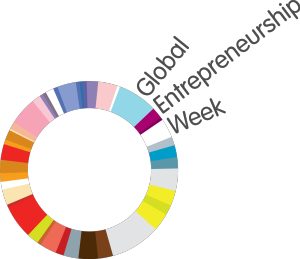The JOBS Act (Jumpstart Our Business Startup Act), a law that encourages the funding of U.S. small businesses and startups by easing various securities regulations, had the Reg A+ exemption go live on June 19th of this year. The exemption will further facilitate access to capital for smaller companies and provide investors with more investment options.
Smaller companies now have the opportunity to offer and sell up to $50 million in securities in an annual period, subject to eligibility, disclosure and reporting requirements. This is great news for startups and small businesses, of which 86 of the fasting growing startups in the U.S. call Utah home. Regarded as the next “Silicon Valley”, the state leads the Forbes 2014 list of top states to do business, and ranks third on CNBC’s list of the best states to do business.
Because of this, crowdfunding platforms, such as Seed Equity Ventures, are now closing the gap for entrepreneurs working to raise capital in the early stages of their business. Giving them a direct lifeline to make it out alive past their seed stage. All the while, they are providing investors worldwide the option to get involved with compelling new opportunities they otherwise wouldn’t normally find.
The introduction of crowdfunding into the financial landscape of today has created an easy exchange of capital between businesses and their investors through its efficiency in getting key information out to the masses. And the numbers don’t lie.
Last year saw a 167 percent increase in money raised for companies and individuals via crowdfunding; that’s a $15.1 billion jump from 2013. Over $250 million of that came directly from venture capitalists and strategic investors.
Startups with even the greatest potential who choose to not go the crowdfunding route often find themselves struggling to stay afloat in their early stages, namely the seed stage. This is because most venture capitals and institutions are more inclined to make an investment in a smaller business once it’s already been established in the marketplace and seeking to expand.
 Forbes recently came out with a group of new tech startups that have the edge in their own perspective emerging markets. Seedstars World, an affiliate venture capital firm to Seedstars, created this list of emerging markets and dominating startups associated with these markets. There were 19 startup companies mentioned in the article in varying emerging markets.
Forbes recently came out with a group of new tech startups that have the edge in their own perspective emerging markets. Seedstars World, an affiliate venture capital firm to Seedstars, created this list of emerging markets and dominating startups associated with these markets. There were 19 startup companies mentioned in the article in varying emerging markets.